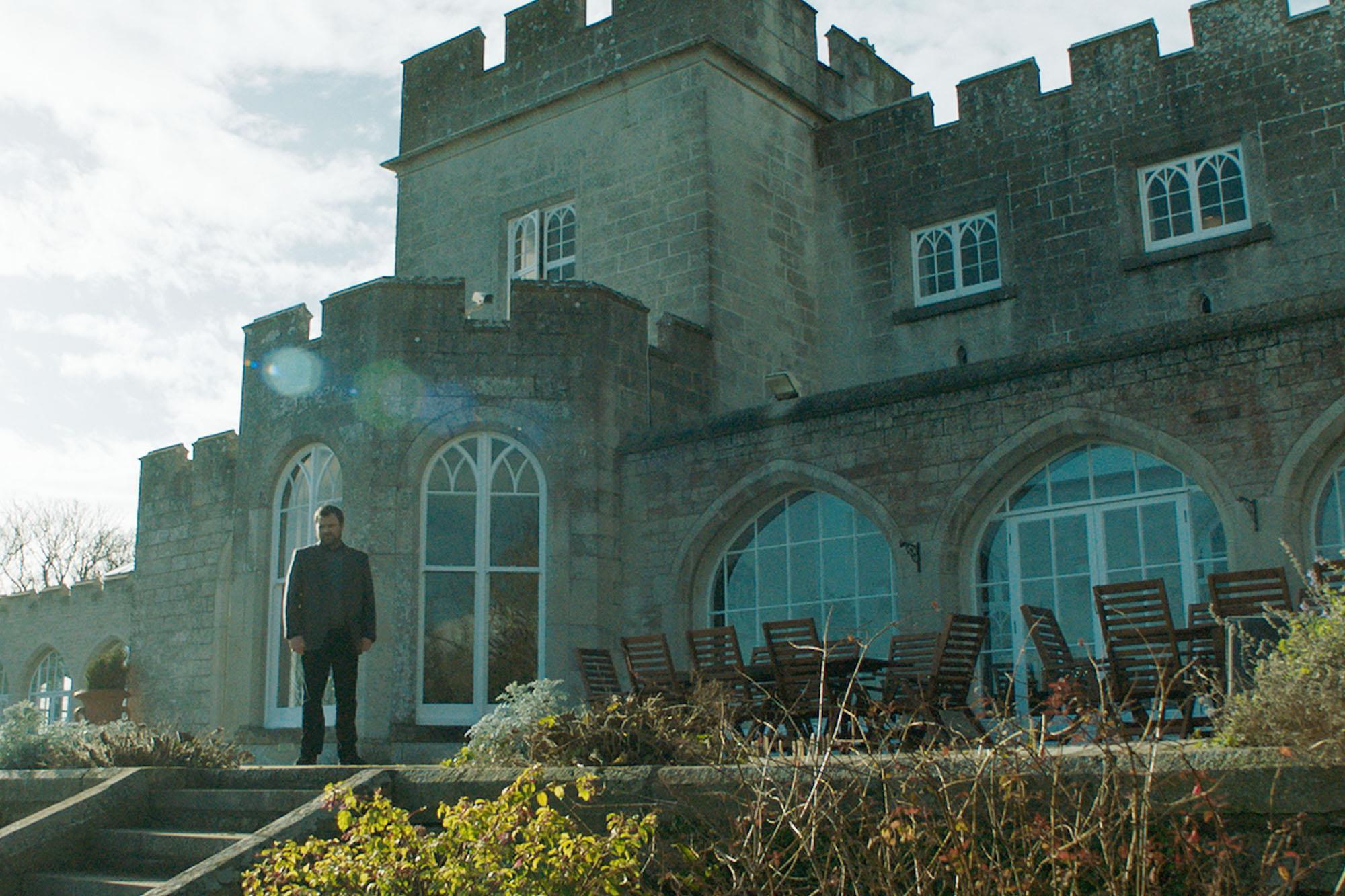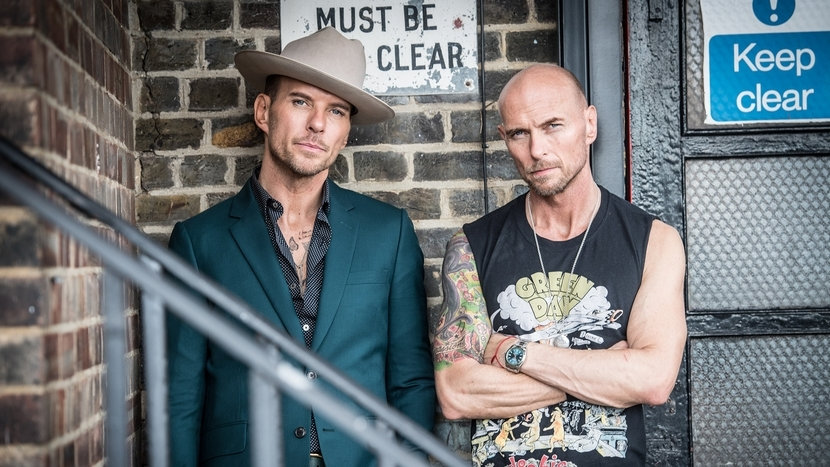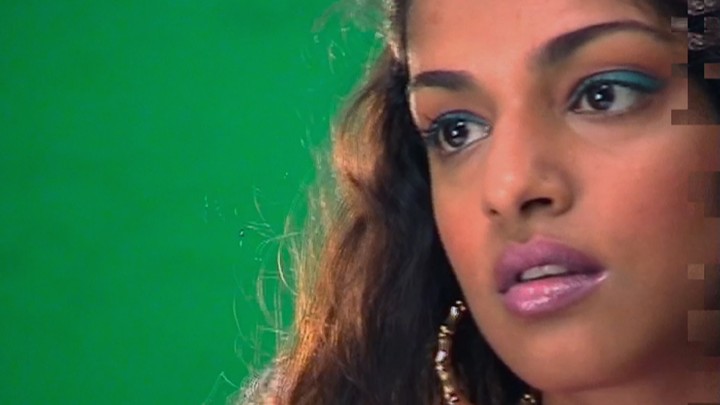(All films released in UK cinemas between January 1 and December 31, 2018; click on individual titles, should you require further persuasion.)
20. Erase and Forget
I'm as fed up as anyone with films being indiscriminately labelled as "very much of the Trump era", but this singular documentary pushed deeper, and carved out its own memorably distinct space and approach, interrogating the viewer's own prejudices alongside those of its bristling yet painfully human subject.
19. Padmaavat
2018's most lavish, possibly overwhelming spectacle. I respectfully take the points about the prettification of the generally ugly behaviour it depicts, but I also thought the aesthetic and star power lent cinematic heft to what was, at heart, a simple cautionary tale: don't be the kind of guy who sets women to running into bonfires.
Streaming via Amazon Prime, and available on DVD through Shemaroo.
18. The Square
By no means a total success, and far from unproblematic, but its various provocations have installed themselves in my cranium, and continue to tickle me.
Streaming via Netflix and Curzon, and available on DVD through Curzon.
17. Raazi
A genuinely taut thriller that managed to maintain suspense without sacrificing any of its sociopolitical nuance, with the kind of knockout star performance any American movie would kill for.
Streaming via Amazon Prime, and available on DVD through Big Home Video.
16. The Captain/Der Hauptmann
One of the year's big surprises. An unbuzzed WW2 drama, from the director of Flightplan and The Time Traveller's Wife, that arrived via streamer link and promptly chilled me to the bone with its unflinching diagnosis of how fascism takes hold.
Available on DVD through Signature Entertainment.
15. Wildlife
I caught it as it was slipping out of cinemas, but was bowled over by the quiet, thoughtful craft Paul Dano, Zoe Kazan and a never-better Carey Mulligan brought to this adaptation of Richard Ford's novel.
Available on DVD through Icon from March 18, 2019.
14. The Eyes of Orson Welles
A worthier, livelier (and altogether more honest) tribute to Welles, his genius and his legacy than any of the fusty relics popping up on Netflix this year.
Available on DVD through Dogwoof.
13. Bad Times at the El Royale
A real movie movie, such as the Hollywood studios used to make. (And now have no idea how to market.) Hadn't realised writer-director Drew Goddard was one of the prime movers behind TV's The Good Place; yet mentally revisiting the film's gleefully expansive plotting and generosity towards its actors, it suddenly made perfect sense.
Available on DVD through Fox from February 4, 2019.
12. A Quiet Place
A brilliant conceit, worked through with consummate skill. Also made the Vue crowd shut up for ninety minutes, which was nice.
Available on DVD through Paramount.
11. Sweet Country
Immensely powerful Australian counter-history, staged with tremendous assurance by Samson & Delilah's Warwick Thornton.
Streaming through the BFI, and available on DVD through Thunderbird.
10. Widows
One shrewd choice after another. Amazed it hasn't had more awards-circuit love.
Available on DVD through Fox from March 18, 2019.
9. Summer 1993
The year's big arthouse sleeper hit, and deservedly so: an incredibly precise and affecting drama founded on two of the best directed child performances in decades.
Streaming via Curzon and the BFI, and available on DVD through Drakes Avenue.
8. Lady Bird
One of two great gestures of apology to emerge in cinemas this year (see also: #1).
Available on DVD through Universal.
7. 120 BPM (Beats Per Minute)
Few films this year were possessed of a greater sense of life - perhaps because so many of its characters were trying to escape the shadow of death.
Streaming via Curzon, and available on DVD through Curzon Artificial Eye.
6. Custody
The year's standout thriller? A domestic stand-off that seesaws in directions you simply cannot predict. Human behaviour is like that, sometimes.
Streaming via Curzon and the BFI, and available on DVD through Spirit.
5. The Wild Pear Tree
A rare coming-of-age story to acknowledge the rottenness we need to shake off if we are to mature. The detail of a novel, secreted within the images of a master painter.
Streaming via Curzon and the BFI, and available on DVD through Drakes Avenue from February 25, 2019.
4. A Cambodian Spring
Homes under the state's hammer, and the mother courages defending them to the hilt. Stunning long-form documentary continually repays our investment; might usefully play as a double-bill with #7 on the politics of resistance.
3. First Reformed
An older, wiser filmmaker pares down his art to the essentials, while rethinking the solipsism of Taxi Driver to more powerful purposes yet. A film that tangles you up in barbed wire, while holding out fragile hope of better days ahead. Perhaps.
Available on DVD through Universal.
2. Leave No Trace
Seemed to deepen everything I only quietly admired about Winter's Bone: the sense of place, the empathetic description of hardscrabble, marginal lives, the close-up work with actors. Amazingly, it does all this without signalling anything like as much: only in the devastating closing moments do you realise what's been achieved here, the extent to which Granik has pulled us all off the beaten track.
Available on DVD through Sony.
1. Roma [above]
A predictable pick, I guess, but in terms of technical guile and visual/emotional scale, it soared head-and-shoulders above any other film I saw in 2018.
Still showing in selected London cinemas, and streaming via Netflix.
More-than-honourable mention: Tamara Jenkins' Private Life, which - if it had received the cursory theatrical release afforded to stablemates Roma, Mowgli and The Ballad of Buster Scruggs - would easily have placed Top 3 on this list. As it is, it'll have to settle for being the year's best straight-to-Netflix proposition. Changing times.










